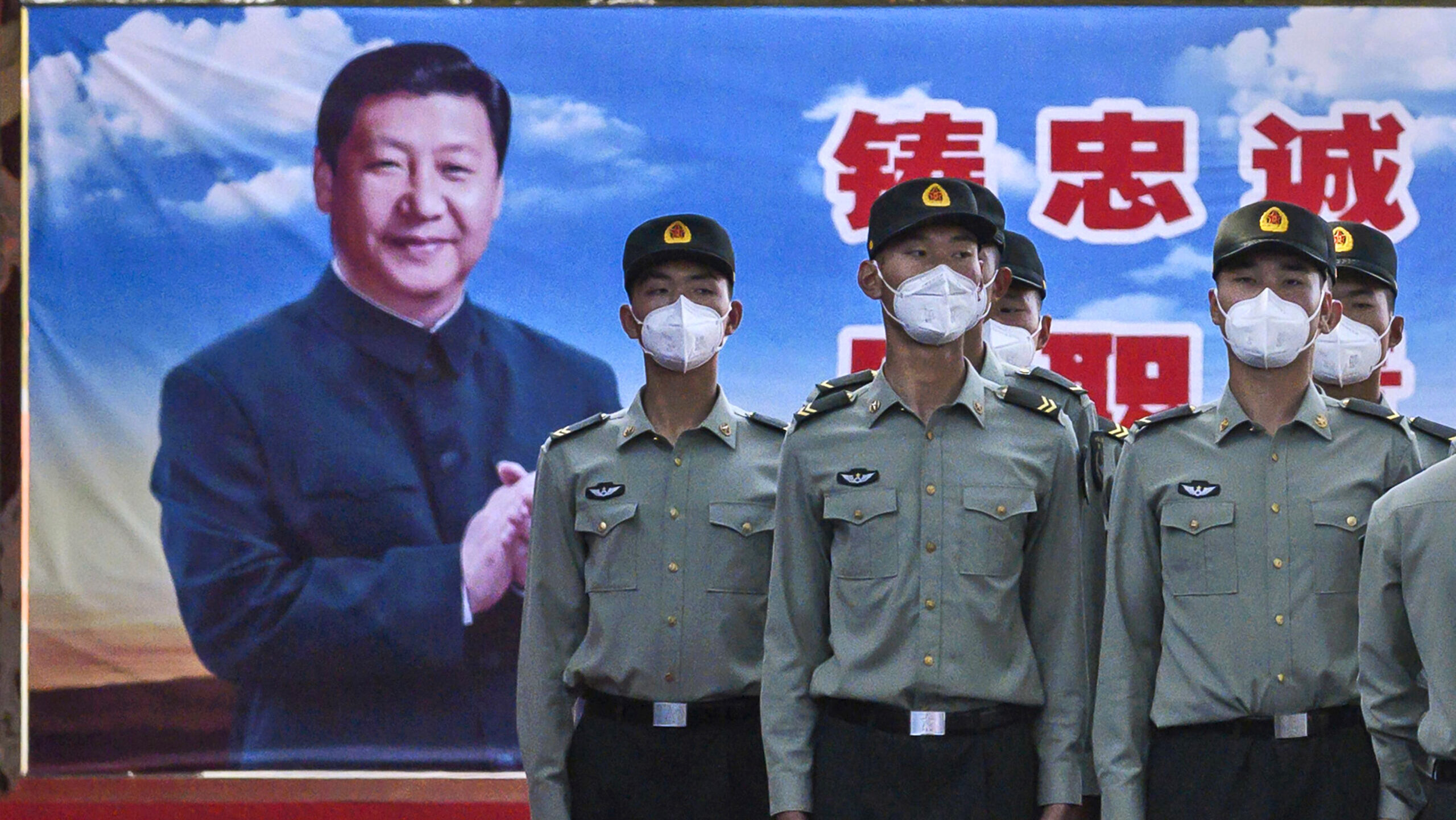COLIN CLARK

SYDNEY — As many high-level military officials from China’s People’s Liberation Army have disappeared over the last two months, experts are in agreement that something disturbing is happening inside the world’s fastest growing military — even if what exactly is driving it all is unclear.
“Though China hasn’t confirmed it, I think the general consensus at the moment among China watchers is that a purge is underway,” Meia Nouwens, Chinese military expert at London’s International Institute for Strategic Studies, said in an email to Breaking Defense.
That term, “purge,” has appeared more and more this fall among China experts. And there is a reason: two ministers and three high-profile generals have all fallen under charges of corruption, an excuse that has historically been used to remove those that leaders in Beijing want removed:
- Defense Minister and (more importantly) member of the Central Military Commission Li Shangfu simply vanished from sight. He’s reportedly under investigation for corruption;
- Foreign Minister Qing Jang was formally removed from office. No reason was given, though reports say he’s being investigated for corruption;
- Li Yuchao was head of the Rocket Force; the South China Morning Post reported he was under investigation for corruption;
- Two former deputies of Li’s, Zhang Zhenzhong and Liu Guangbin, are also being investigated.
And there may be more. The Japanese English newspaper, Nikkei Asia, went so far as to report last week that “a great military purge is underway in China.” The story by Katsuji Nakazawa, the paper’s longtime China reporter now based in Japan, cited “the absence of key military figures” at a Sept. 28 dinner to celebrate the 74th anniversary of the foundation of the People’s Republic of China.
“We know about the disappearances within the PLA and elsewhere. But no one really knows why. Nikkei has been publishing a few quite eye-catching pieces, but it is not possible to independently corroborate their claims,” warned Ian Chong, associate professor at the National University of Singapore. “At best, we can say there is some degree of upheaval across various parts of the PRC and CCP, but no one can be sure as to why. The PRC’s current opacity only adds to the uncertainty.”
The Importance Of China’s Rocket Force
The removal of officers “seems to be particularly targeted at the PLA Rocket Force and Equipment Development Department,” Nouwens told Breaking Defense.
“We need more information to understand what the impact of this all is for the PLA’s capability and combat readiness. Depending on the reason behind the purge, it could signal that there may be issues within the Rocket Force that we have been unaware of, or it could have an impact on the PLA’s morale, as the military already went through an anti-corruption campaign earlier in President Xi’s first term,” Nouwens said.
“Something seems to have gone wrong in these two organizations. However we don’t know what,” she said. “There are rumors of espionage, or intelligence leaks, or just plain old (but significant) corruption. Whatever it is, it has to have been serious enough for President Xi to decide to take action against trusted officials that he only very recently promoted to their current positions.”
Dean Cheng, now a senior advisor the US Institute of Peace’s China program, said soon after the PLA Rocket Force officers were swept away that “the potentially most likely” reason was “either genuine corruption issues, or corruption coupled with compromise (i.e., perhaps these officers were being blackmailed or were working for Taiwan, or the US or some other Western government). I say it’s the most likely because there IS a lot of corruption in the Chinese system, and Xi has been sustaining an anti-corruption campaign since coming into office in 2012.”
The Rocket Force, or PLARF, removals, though they involve people further down the ladder than the foreign and defense ministers, are very intriguing.
Cheng points out that the PLARF “has massively expanded, in terms of nuclear forces, at least based on the number of ICBM silos detected (more than 300). That suggests a major expansion in the PLARF’s responsibilities and resources, as it had been generally credited with only a few score ICBMs.”
While this vast expansion might normally be happily greeted by apparatchiks, Cheng pondered if the increase in resources could have led to the PLARF leadership becoming “arrogant.” It’s also important to remember, Cheng said, that all those removed now were promoted directly by the man who removed them: Xi Jinping.
In fact, all of those who have been removed “presumably rose with Xi’s implicit, if not explicit, approval,” Cheng wrote. But it is also possible that Xi’s “massive reforms of the military,” which upset traditions such as domination of the PLA by ground forces may have sparked internal opposition.
The most worrying interpretation Cheng offered was that Xi “is clearing the decks, ensuring that the top military officers are onboard in preparation for major conflict. This would be the feared invasion of Taiwan, or an overt military move against, say, the Philippines or the Vietnamese in the Spratlys/South China Sea.”
But that, he said, would be a leading indicator, one that would be impossible to confirm for quite some time.
No comments:
Post a Comment